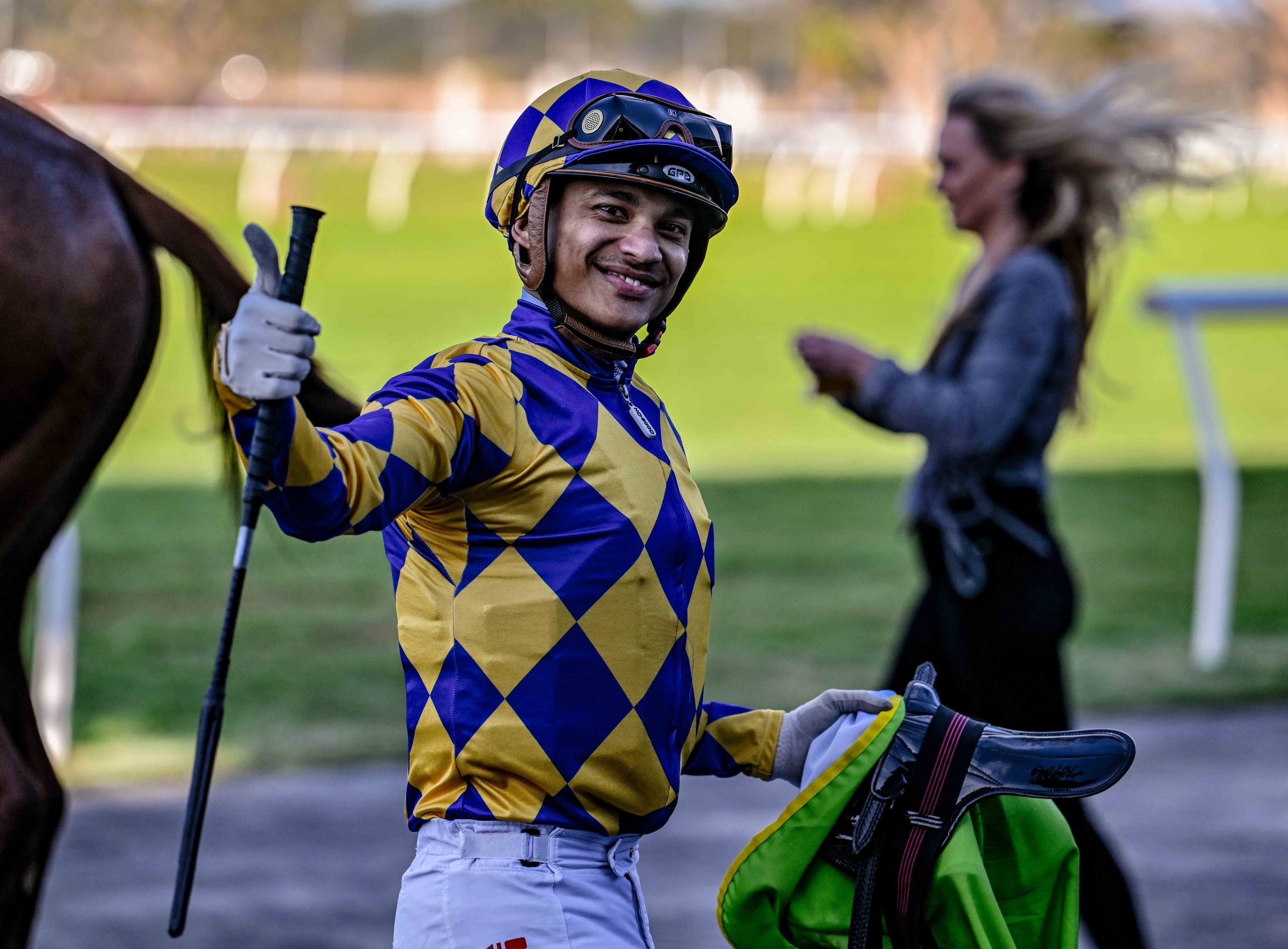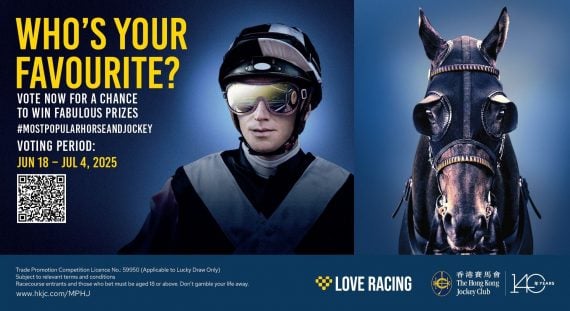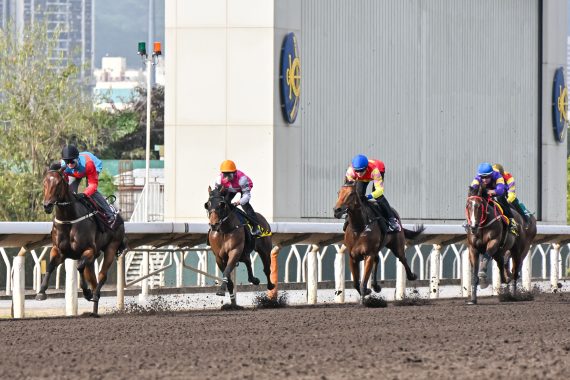It’s not how you play the game, it’s how you place the blame!
Twenty-four hours after the lights went out on what was a sizzlingly successful Hollywoodbets Durban July day of high-powered horseracing, fingers are, not unexpectedly, being pointed at the eThekwini Municipality and a variety of stakeholders, from the racing operator to the regulator, and inevitably, the jockeys.
The fallout from what amounted to a dreadfully sad and embarrassing ending to South Africa’s greatest raceday of the year has resulted in shots across the bows from various quarters.
A widely circulated note on various whatsapp platforms suggested that the racing operator had been ‘thrown under the bus’ by the National Horseracing Authority, who had requested ‘guarantees’ that the lights would not go out.
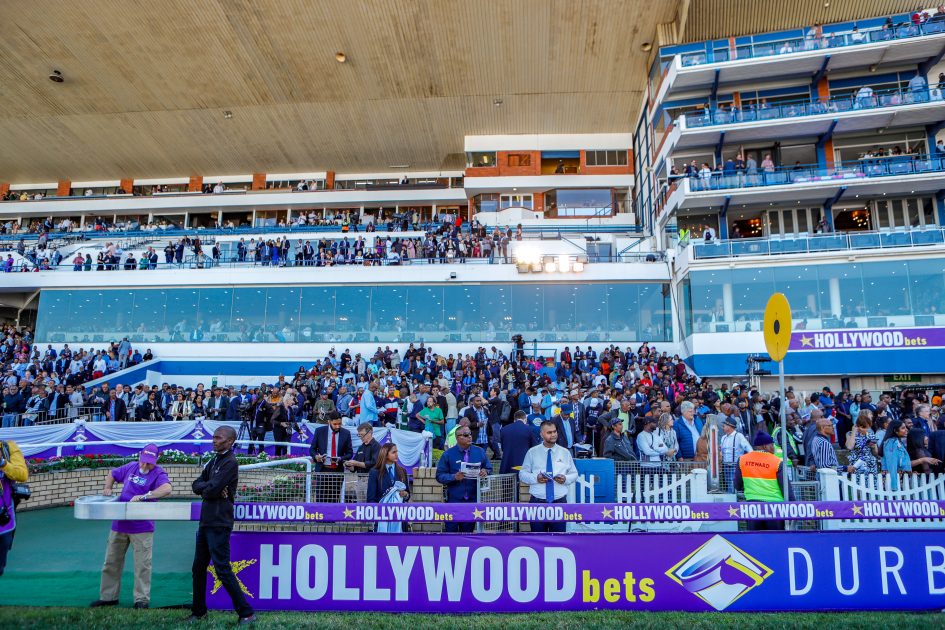
It was a fabulous day of great racing (Pic – Candiese Lenferna)
National Horseracing Authority CEO Vee Moodley has rejected this suggestion and told the Sporting Post that his officials did everything in their power to keep the terrific show on the road.
The official Stipes report sums up what happened after the outage just after 18h00, and prior to the running of the tenth of twelve carded races:
As the riders proceeded to the start of this race, the racecourse was cast into darkness due to load shedding which commenced at 18h00 in the vicinity of the Hollywoodbets Greyville Racecourse.
Upon enquiry from the Stewards, Gold Circle management advised that load shedding was not planned for the period from 18h00 to 20h00 in the vicinity due to a pre-arrangement with the Metro. It was added subsequently that the electricity was switched off at 18h00, and would then be restored, but that it would take at least thirty minutes for the floodlights to be powered up to facilitate racing. The Stewards called for a meeting with the riders and it was established that they had serious concerns that they had been left in darkness en-route to the start, which in their opinion would potentially put their lives and that of their horses at risk.
The Stewards enquired from Gold Circle if any guarantees could be given that the electricity would be constant and uninterrupted once the floodlights were powered up. The response was that no guarantees could be given. During the meeting there was a further dip in the electricity which raised further concerns from all parties present.
The jockeys were then asked if they would consider waiting until 20h00 until the planned original load shedding schedule had ended, to which they replied in the negative as no guarantees of constant, uninterrupted electricity at this projected time, could be given by any party.
The Stewards, after carefully considering the opinions from the riders, the Veterinary Surgeons and the Gold Circle representatives formed the opinion that the lives of the jockeys and the horses could not be placed at risk in these circumstances and decided that the race meeting should be abandoned in the interest of rider safety, horse welfare and the integrity of racing.

Happy winners of what was to be the last race (Pic – Candiese Lenferna)
In a whatsapp communication circulating on Sunday, and received from a variety of reliable sources, it is stated that the Durban Mayor had personally signed a letter to Gold Circle informing them that there would be no load shedding.
The message goes on to say that apparently, someone made a mistake at the municipality and switched off Hollywoodbets Greyville’s feed.
‘The municipality rectified it quickly and put the feed back on. The lights would have to be cooled for about thirty minutes and then were reinstated too early, causing them to trip.
With no load shedding (as they were now put on a non-load shedding stream), they were ready to go and then the jocks protested saying that the lights could go out in a race. It was explained clearly to the jockeys that each light has a battery that runs for four minutes which would cover the race, pull up and canter back. Astonishingly, the jocks were not interested, and many had already showered by then, ready to go out and party.
Even more astonishingly, given the explanation by Gold Circle on the four minute battery backup for each course light, the NHRA then threw Gold Circle under the bus by stating that the racing operator would have to give guarantees that the lights would not go out again. Gold Circle explained that even if they had huge generators, they could also malfunction, so how could they give guarantees?
When the jockeys had their protest, Soumillon urged them to ride as he had come to win races but the party mood had kicked in and they wanted to abandon the rest of the meeting. In cases like this, the reputational damage far outstrips the financial one. And basically, it means that we can never have night racing again.’
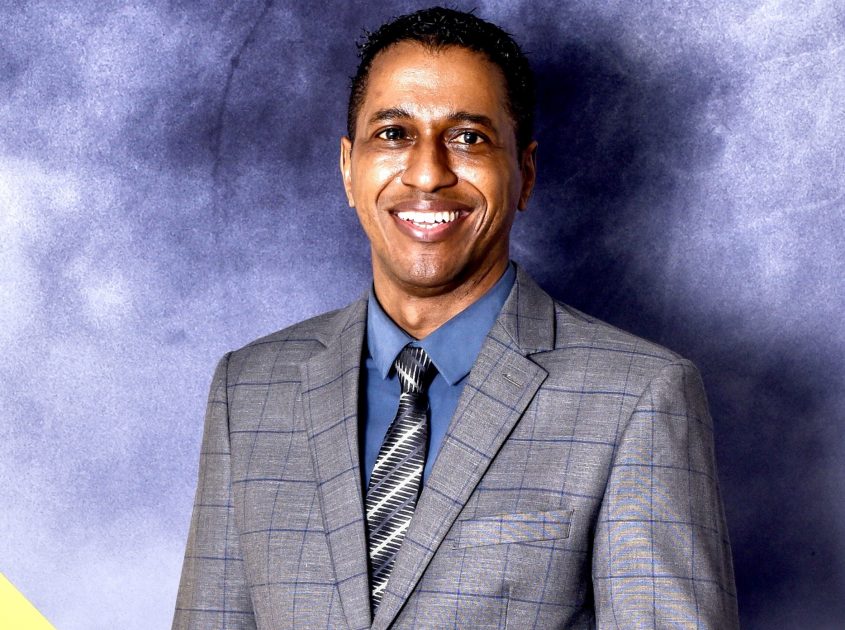
NHA CEO Vee Moodley sets the record straight
NHA CEO Vee Moodley explained to the Sporting Post that the request for the ‘guarantee’ actually came directly from the jockeys, and he asked who, in fairness, would proceed with the risks, after the jockeys had found themselves in darkness again on the way to the start of the tenth?
“The riders wanted to know why the 4 minute back-up didn’t kick in when they were on the way to the start for the tenth race,” he added.
The Sporting Post has learnt that international visiting jockey Christophe Soumillon even suggested putting cars with their headlights on the polytrack to get some light in the straight.
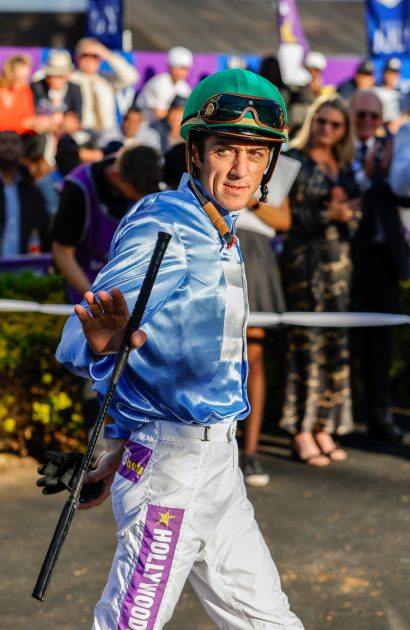
International jockey Christophe Soumillon – wanted to continue (Pic – Candiese Lenferna)
Apparently Gold Circle management could not answer questions asked by the riders to give them sufficient comfort to continue. Mr Moodley added that his officials tried everything to keep the show on the road, but there was another power failure when they were talking to the riders.
“We couldn’t force them to ride and risk having potential fatalities if there was another power failure mid race,” he added.
The root of the issue is clearly the ongoing loadshedding and blaming all and sundry is not going to resurrect the day or compensate the sponsors, owners, trainers and punters, who found themselves enjoying only 75% of what was a bumper card.
The Durban July has continued through world wars, covid and other challenges.
Fifteen July’s have been run through times of loadshedding.
Hopefully the Gold Circle investigation will provide the necessary clarity to ensure that this never happens again.






